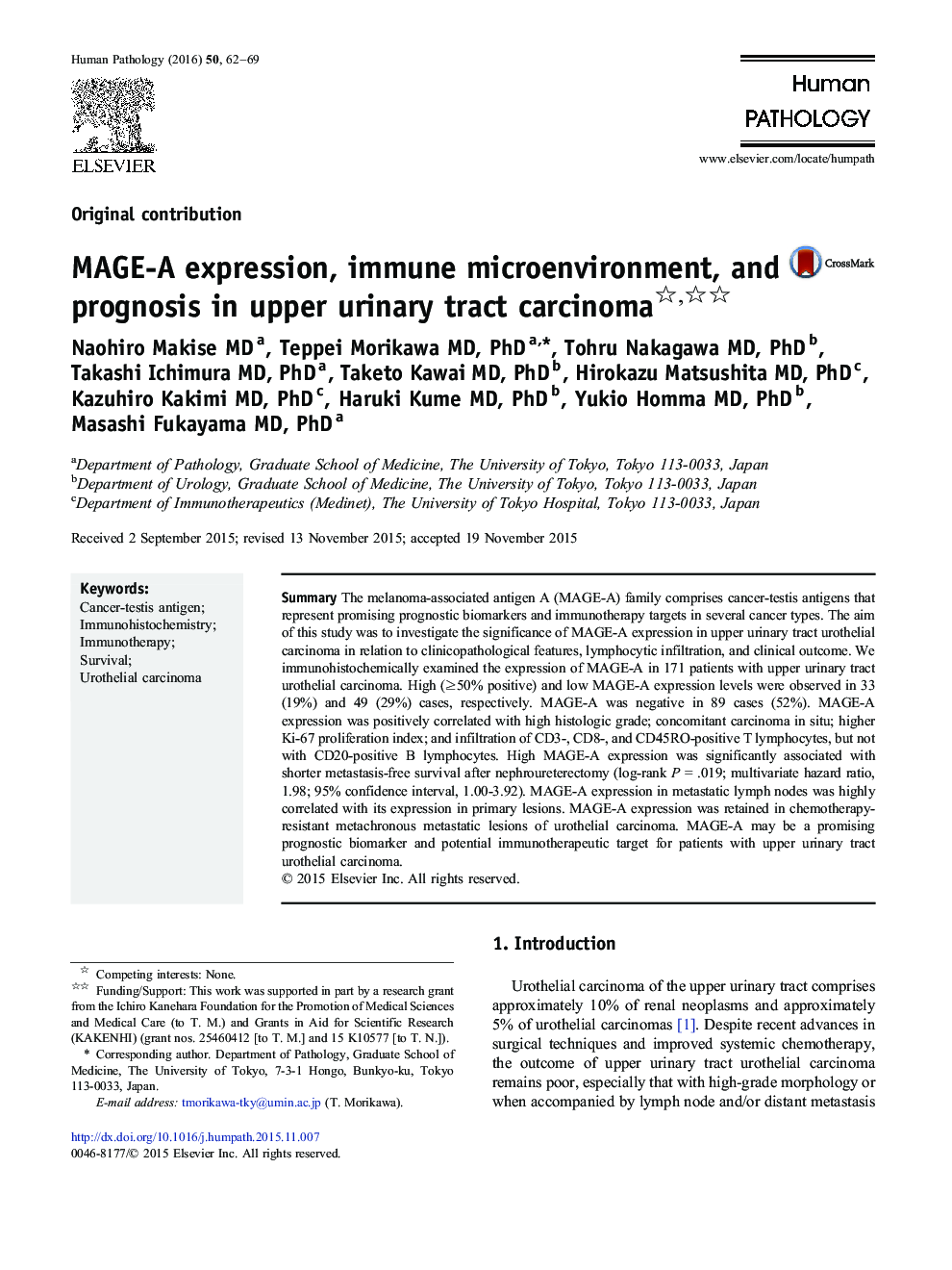| Article ID | Journal | Published Year | Pages | File Type |
|---|---|---|---|---|
| 6215540 | Human Pathology | 2016 | 8 Pages |
SummaryThe melanoma-associated antigen A (MAGE-A) family comprises cancer-testis antigens that represent promising prognostic biomarkers and immunotherapy targets in several cancer types. The aim of this study was to investigate the significance of MAGE-A expression in upper urinary tract urothelial carcinoma in relation to clinicopathological features, lymphocytic infiltration, and clinical outcome. We immunohistochemically examined the expression of MAGE-A in 171 patients with upper urinary tract urothelial carcinoma. High (â¥50% positive) and low MAGE-A expression levels were observed in 33 (19%) and 49 (29%) cases, respectively. MAGE-A was negative in 89 cases (52%). MAGE-A expression was positively correlated with high histologic grade; concomitant carcinoma in situ; higher Ki-67 proliferation index; and infiltration of CD3-, CD8-, and CD45RO-positive T lymphocytes, but not with CD20-positive B lymphocytes. High MAGE-A expression was significantly associated with shorter metastasis-free survival after nephroureterectomy (log-rank P = .019; multivariate hazard ratio, 1.98; 95% confidence interval, 1.00-3.92). MAGE-A expression in metastatic lymph nodes was highly correlated with its expression in primary lesions. MAGE-A expression was retained in chemotherapy-resistant metachronous metastatic lesions of urothelial carcinoma. MAGE-A may be a promising prognostic biomarker and potential immunotherapeutic target for patients with upper urinary tract urothelial carcinoma.
